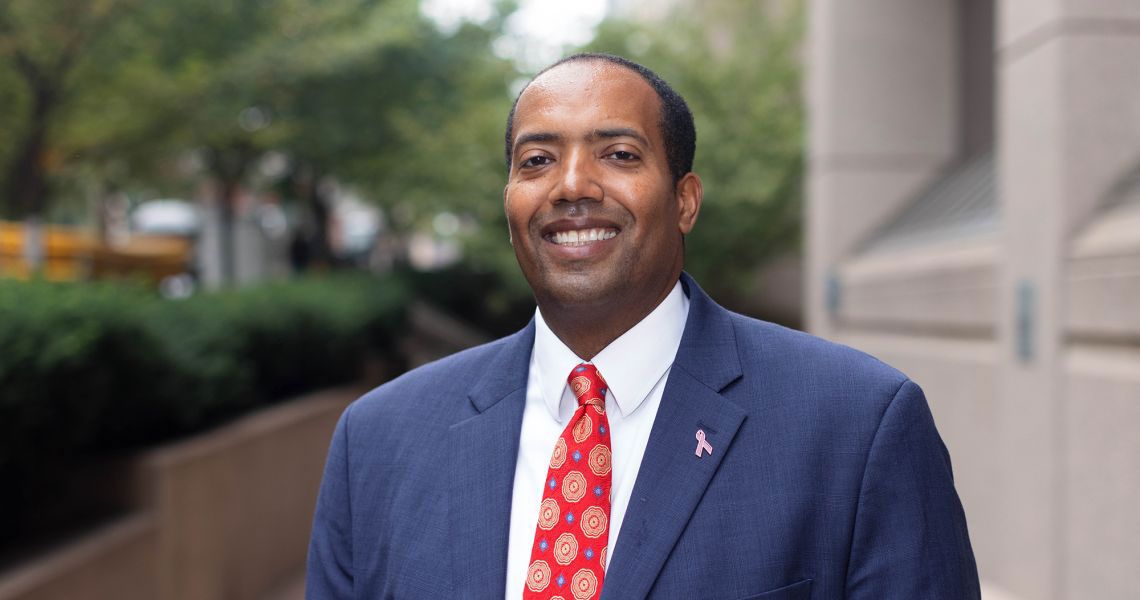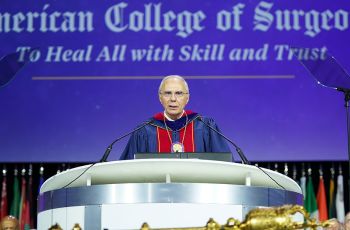In late April 2022, the George Washington University (GW) Transplant Institute’s new Liver Transplant Program completed its first liver transplant, led by surgeons Stephen Gray, MD, a provider with Transplant Services at the GW Medical Faculty Associates (MFA) and associate professor of surgery at the GW School of Medicine and Health Sciences (SMHS), and Lynt Johnson, MD, executive director of the Liver and Pancreas Institute for Quality at the GW MFA and professor of surgery at GW SMHS. Below, Gray explains the basics of liver disease and transplant, including what to look out for and what to know about the surgery and recovery.
What does the liver do?
Gray: The liver is key to a number of processes, including the metabolism, or chemical processing, of nutrients. All of the blood from the intestine and the small bowel passes through the liver. In the liver, the blood is processed to break down nutrients so the body can use them. The liver is also key in most drug metabolism. In addition, the liver makes clotting factors necessary to stop patients from bleeding.
What are symptoms of liver disease and liver cancer?
Gray: Liver disease symptoms can be vague. Often, a patient’s history is the key to the diagnosis. Prior history of exposure to hepatitis C, IV drug use, excessive alcohol use, and abnormal liver tests can be clues to liver disease. Patients may have cirrhosis discovered on routine lab tests.
Liver cancer is suspected in patients with liver disease, especially hepatitis C. Patients with liver disease should be screened for liver cancer. Symptoms can include:
- Jaundice: Key signs are yellowing of the eyes and darkening of the urine.
- Itching: Bile does not drain appropriately, so leftover bile salts can lead to itching.
- Fatigue: The liver can no longer convert nutrients or store vitamins, leaving your energy level low.
- Fluid retention: The diseased liver cannot use protein in the body, leading to fluid buildup.
- Bleeding problems: The diseased liver cannot make those materials needed for blood clotting.
- Mental confusion and irritability
What treatments are available?
Gray: Evaluation by a hepatologist, such as Zahid M. Vahora, MD, another provider with the GW MFA Transplant Services, will help determine treatment options. We have a multidisciplinary approach to liver disease with gastroenterologists, medical oncologists, diagnostic radiologists, and interventional radiologists providing consultation so that we can provide complete care for patients with liver disease.
At what point do physicians recommend a liver transplant?
Gray: If you develop signs of end-stage liver disease that we cannot treat or improve with medication or other interventions, a liver transplant evaluation is recommended.
How long is the wait for a liver transplant?
Gray: Livers are allocated to patients based on the patient’s liver sickness score, such as the Model for End-Stage Liver Disease, or MELD. The wait time is highly variable. There are approximately 9,000 transplants done annually in the United States.
What is the recovery like?
Gray: The initial hospitalization after a liver transplant is usually 7–14 days. The overall recovery period may take about three months until you feel 100% normal. Most people can return to work approximately three months post-transplant.
How does the GW MFA care for patients with liver disease or who might need a liver transplant?
Gray: The GW MFA provides comprehensive liver management. We have a multidisciplinary team that focuses on each patient. If a transplant is indicated, patients will initiate and complete a transplant evaluation. Our goal is to provide high-quality, patient-centered care tailored to the needs of each patient and family.
To make an appointment with a transplant provider, visit GW MFA Transplant Services or call 202-715-4225.




